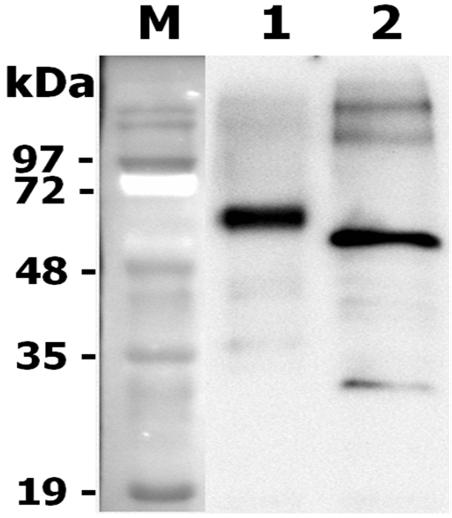Progranulin (rat) (rec.)
Product Code:
AG-40A-0194
AG-40A-0194
Host Type:
Human
Human
Regulatory Status:
RUO
RUO
Target Species:
Rat
Rat
Shipping:
Blue Ice
Blue Ice
Storage:
-20°C
-20°C
No additional charges, what you see is what you pay! *
| Code | Size | Price |
|---|
| AG-40A-0194-C010 | 10 ug | £160.00 |
Quantity:
| AG-40A-0194-C050 | 50 ug | £320.00 |
Quantity:
Prices exclude any Taxes / VAT
Stay in control of your spending. These prices have no additional charges, not even shipping!
* Rare exceptions are clearly labelled (only 0.14% of items!).
* Rare exceptions are clearly labelled (only 0.14% of items!).
Multibuy discounts available! Contact us to find what you can save.
This product comes from: Switzerland.
Typical lead time: 7-10 working days.
Contact us for more accurate information.
Typical lead time: 7-10 working days.
Contact us for more accurate information.
- Further Information
- Documents
- Related Products
- Show All
Further Information
Alternate Names/Synonyms:
Proepithelin; PEPI; PC Cell-derived Growth Factor
EClass:
32160000
Endotoxin:
<0.1EU/µg purified protein (LAL test; Lonza).
Form (Short):
liquid
Formulation:
Lyophilized from 0.2µm-filtered solution in PBS.
Handling Advice:
After reconstitution, prepare aliquots and store at -20°C.Avoid freeze/thaw cycles.Centrifuge lyophilized vial before opening and reconstitution.PBS containing at least 0.1% BSA should be used for further dilutions.
Long Description:
Protein. Signal peptide and rat progranulin (aa 1-602) are fused at the C-terminus to a FLAG®-tag. Source: HEK 293 cells. Endotoxin content: <0.1EU/µg purified protein (LAL test; Lonza). Lyophilized from 0.2µm-filtered solution in PBS. Purity: >95% (SDS-PAGE). Progranulin (PGRN) is a widely expressed pluripotent growth factor which plays a role in processes such as development, wound repair and inflammation by activating signaling cascades that control cell cycle progression and cell motility. Its function in the central nervous system is of interest, as mutations in the PGRN gene were found in cases of frontotemporal degeneration (FTLD). In addition, PGRN has also been linked to tumorigenesis. Progranulin is a biomarker for FTLD, other types of Alzheimer's Disease (AD) and potentially for MCI (Mild Cognitive Impairment). Additionally, PGRN is described as a new ligand of TNF receptors and a potential therapeutic against inflammatory disease like arthritis.
Molecular Weight:
~65kDa (SDS-PAGE)
NCBI, Uniprot Number:
Genome Net link NP_058809
Package Type:
Plastic Vial
Product Description:
Progranulin (PGRN) is a widely expressed pluripotent growth factor which plays a role in processes such as development, wound repair and inflammation by activating signaling cascades that control cell cycle progression and cell motility. Its function in the central nervous system is of interest, as mutations in the PGRN gene were found in cases of frontotemporal degeneration (FTLD). In addition, PGRN has also been linked to tumorigenesis. Progranulin is a biomarker for FTLD, other types of Alzheimer's Disease (AD) and potentially for MCI (Mild Cognitive Impairment). Additionally, PGRN is described as a new ligand of TNF receptors and a potential therapeutic against inflammatory disease like arthritis. EphA2, a member of the large family of Ephrin receptor tyrosine kinases, is also a functional signaling receptor for progranulin as reported recently.
Purity:
>95% (SDS-PAGE)
Sequence:
Signal peptide and rat progranulin (aa 1-602) are fused at the C-terminus to a FLAG®-tag.
Source / Host:
HEK 293 cells
TAGs:
FLAG
Transportation:
Non-hazardous
UNSPSC Category:
Other Proteins
UNSPSC Number:
12352202
Use & Stability:
Stable for at least 6 months after receipt when stored at -20°C. Working aliquots are stable for up to 3 months when stored at -20°C.
Related Products
| Product Name | Product Code | Supplier | Progranulin (human) (rec.) (untagged) | AG-40A-0188Y | AdipoGen Life Sciences | Summary Details | |||||||||||||||||||||||||||||||||||||||||||||||||||||||||||||||||||||||||||||||||||||||||||||
|---|---|---|---|---|---|---|---|---|---|---|---|---|---|---|---|---|---|---|---|---|---|---|---|---|---|---|---|---|---|---|---|---|---|---|---|---|---|---|---|---|---|---|---|---|---|---|---|---|---|---|---|---|---|---|---|---|---|---|---|---|---|---|---|---|---|---|---|---|---|---|---|---|---|---|---|---|---|---|---|---|---|---|---|---|---|---|---|---|---|---|---|---|---|---|---|---|---|---|---|
| Progranulin (mouse) (rec.) (untagged) | AG-40A-0189Y | AdipoGen Life Sciences | Summary Details | ||||||||||||||||||||||||||||||||||||||||||||||||||||||||||||||||||||||||||||||||||||||||||||||||



